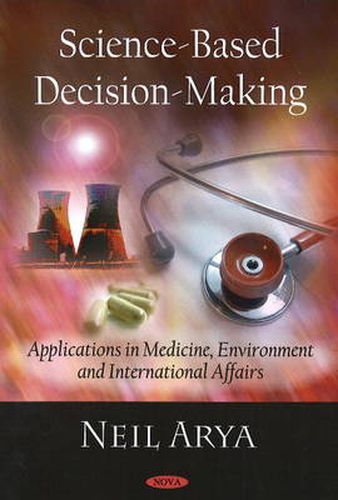Readings Newsletter
Become a Readings Member to make your shopping experience even easier.
Sign in or sign up for free!
You’re not far away from qualifying for FREE standard shipping within Australia
You’ve qualified for FREE standard shipping within Australia
The cart is loading…






This book explores applications of decision-making primarily in health care but also presents examples dealing with environmental challenges and international affairs. It gives recent evidence of failures in each of these sectors and attempts to explain how such errors recur. It then describes some medical approaches to decision-making, evidence-based medicine, guidelines, epidemiology, risk assessment, prevention and screening and how they might apply beyond the world of medicine, even to international affairs. Guidelines and decision-making in medical practice are frequently premised on fundamental logical fallacies and questionable assumptions. These include faulty end points, surrogate indicators and a failure to understand the difference between causation and association. Such mistakes also occur in international affairs, and seem to be related to narrowly reductionist, ‘Scientistic’ or ‘Realist’ approaches, which ignore biases and distortions to objective decision-making. Reasons for acceptance of such failures include perceived self-interest and various cognitive distortions promoted in each sector by corporate use of media, think tanks, key opinion leaders, consumer or citizen groups, all which appeal to fears and uncertainties. Recommendations are made for changes to achieve more robust decision-making in each of medicine, environment and international affairs.
$9.00 standard shipping within Australia
FREE standard shipping within Australia for orders over $100.00
Express & International shipping calculated at checkout
This book explores applications of decision-making primarily in health care but also presents examples dealing with environmental challenges and international affairs. It gives recent evidence of failures in each of these sectors and attempts to explain how such errors recur. It then describes some medical approaches to decision-making, evidence-based medicine, guidelines, epidemiology, risk assessment, prevention and screening and how they might apply beyond the world of medicine, even to international affairs. Guidelines and decision-making in medical practice are frequently premised on fundamental logical fallacies and questionable assumptions. These include faulty end points, surrogate indicators and a failure to understand the difference between causation and association. Such mistakes also occur in international affairs, and seem to be related to narrowly reductionist, ‘Scientistic’ or ‘Realist’ approaches, which ignore biases and distortions to objective decision-making. Reasons for acceptance of such failures include perceived self-interest and various cognitive distortions promoted in each sector by corporate use of media, think tanks, key opinion leaders, consumer or citizen groups, all which appeal to fears and uncertainties. Recommendations are made for changes to achieve more robust decision-making in each of medicine, environment and international affairs.